NEWS: Surprising “year of the environment” ends in Columbia
BRIEFS: On carrying guns, power, classroom sizes, more
COMMENTARY, Brack: Not hard to connect the dots on CHE nomination
SPOTLIGHT: Conservation Voters of South Carolina
MY TURN, Hillman: It’s time to move beyond white privilege
FEEDBACK: Send in your thoughts
MYSTERY PHOTO: Stately old building
S.C. ENCYCLOPEDIA: Education in South Carolina
NEWSBIG STORY: Surprising “year of the environment” ends in Columbia

By Lindsay Street, Statehouse correspondent | Swelling bipartisan support for environmental issues made the so-called “Year of Education” look more like “Year of the Environment.”
The final-day passage of a keystone solar bill and a growing resistance to offshore drilling are being touted among the victories by conservation advocates. Thursday marked the last official day of the first year of the 2019-2020 session.
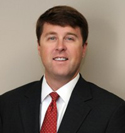
“This has been by far the best year for environmental issues, really raising awareness to issues we face in our state,” said Charleston Republican Rep. Peter McCoy, who led the charge on solar and other environmental issues.
Conservation groups have called the session a “huge victory.”
“Republicans and Democrats (fought) tooth and nail for the same legislation to protect South Carolina’s natural resources,” Coastal Conservation League Communications Director Caitie Forde-Smith said. “It’s an overall theme of progress.”
Lawmakers and environmental advocates credited voters’ shift in priorities toward environmental issues for the good year.
“The fact that those were so universally supported is a testament to how popular these ideas are among South Carolina voters,” Conservation Voters of South Carolina Executive Director John Tynan said. “We’re entering a time when support for clean energy and opposition to offshore drilling are political necessities.”
The Democratic minority leaders, Sen. Nikki Setzler of Lexington and Rep. Todd Rutherford of Richland, as well as Gov. Henry McMaster and the Republican majority leaders, Sen. Shane Massey of Edgefield and Rep. Gary Simrill of York, did not return requests to comment for this story.
Solar’s late session victory
On the last legislative day of the year, House lawmakers concurred with senators on the S.C. Energy Freedom Act, H. 3659. It now heads to McMaster’s desk for his signature.
The bill removes the cap on mandated reimbursement on residential solar and requires the adoption of new provisions governing the way in which electrical utilities purchase power generated by renewable energy facilities.
Passage of the bill signals a big political shift. In the 2018 session, the bill — originally separated into three separate bills — didn’t make a floor vote in either body.

This year’s bill sponsors, McCoy in the House and fellow Republican Tom Davis of Beaufort in the Senate, touted it as a step toward reforming the energy markets in the state.
“We had to do something fundamentally different,” Davis said of the bill in the wake of the shuttered nuclear project in Fairfield County and the promise of new energy production methods. “We really did that with this Energy Freedom Act.”
Davis said the bill moved toward deregulation of the state’s energy market and creating more competition. Environmental advocates agree.
“This is a uniquely South Carolina approach that is rooted in allowing competition,” Tynan said. “It moves us toward a market-driven energy sector that has broken the utility monopoly hold that allows clean energy to thrive and actually compete.”
McCoy said the legislation was possible because big energy providers in the state “lost footing” politically, and voters wanted more clean energy.
Two other environmental items that received the blessing of the General Assembly include:
- Water resource statewide plan ( 4011): The bill adds a “State Water Plan” as an example of a comprehensive water resource policy in which a state agency provides assistance to the governor and General Assembly in formulating; and,
- Confirmation of Lord Berkeley Land Trust head Raleigh West as director of S.C. Conservation Bank.
Local plastics bans left alone, for now
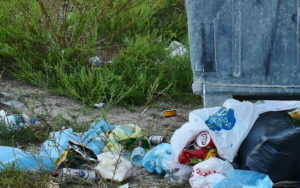 While the solar bill did something proactive, the fact that the General Assembly didn’t ban plastic bag bans for now also is counted as a win for environmentalists and local governments. Currently, there are 17 single-use plastic bans in communities across the state, most of them near the coast, according to Forde-Smith. And there are more under consideration.
While the solar bill did something proactive, the fact that the General Assembly didn’t ban plastic bag bans for now also is counted as a win for environmentalists and local governments. Currently, there are 17 single-use plastic bans in communities across the state, most of them near the coast, according to Forde-Smith. And there are more under consideration.
Every year lawmakers mull disallowing local governments from passing such bans. Senate Bill 394 received a favorable report from committee, but environmental advocates are still pleased that it didn’t make a floor vote yet.
“Senators respect and recognize that home-rule is an important thing in South Carolina” Forde-Smith said. She called the bill not making a Senate floor vote “one of our proudest efforts.”
Davis said an effective defense helped to stall the bill.
But Forde-Smith acknowledged, “We know it’s going to be one of the first things senators take up in 2020.”
Still pending: Action on offshore drilling

The General Assembly still hasn’t officially prevented offshore drilling from taking place off the coast, but some resolutions and a budget proviso are pending. In a special session beginning May 20, lawmakers will decide whether to concur with the Senate’s budget proviso that would bar the state from allowing any infrastructure to support the industry for at least one year.
The proviso by Sen. Chip Campsen, R-Charleston, received unanimous support in the Senate, and the House has signaled strong support of offshore drilling opposition, Tynan said.
- The Trump administration has paused reopening the Atlantic to seismic testing. Read more.
“The resounding opposition to offshore drilling with the South Carolina Senate vote was a strong message that we do not want drilling off our shores,” Tynan said.
McCoy said other pieces of legislation are “all primed up and ready for us on the House floor.” McCoy and others said that while the South Carolina coast is currently not facing drilling, the legislature needs to act in 2020.
“I want to make sure South Carolina sends a strong message that we cannot and will not allow drilling off the coast,” he said.
Other fights looming in 2020
Many of the fights looming in 2020 deal with an overarching theme of dealing with climate change.
“Acting on climate impacts will only grow more urgent,” Forde-Smith said.
- This week, the United Nations released a report that says human activity is threatening millions of species of animals, including homo sapiens. Read the report.
Here are two environmentally-focused bills in committee that could be taken up early in 2020:
- Flooding. Allowance for local taxes to be used for flooding mitigation (S. 217): This bill revises provisions relating to the expenditure of the state accommodations tax, local hospitality tax and local accommodations tax. It also would allow the revenue to be expended for the control and repair of flooding and drainage at tourism-related lands or areas and for site preparation, including demolition, repair, or construction. The Senate passed the bill Jan. 23. It is now in the House Ways and Means Committee.
- More flooding. South Carolina Resilience Revolving Fund ( 259): The proposed legislation would create a fund to provide low interest loans to perform flooded-home buyouts and floodplain restoration. The Senate passed it March 20. It is now in the House Ways and Means Committee.
“We believe the House will take (the revolving fund) up quickly in 2020 and we will be there to support it,” Forde-Smith said.
The Coastal Conservation League also will push for more beach management oversight in the state to help “protect our beaches in the face of sea level rise,” she added.
Tynan said his group is poised to have more conversation as voters push for more clean energy and land protections.
McCoy said lawmakers can no longer ignore the realities of climate change in their districts, and more legislation will come in 2020 on the back of more discussions on the topic.
“You start by raising awareness to the issue. That’s how solar got started. That’s how anti-drill got started,” McCoy said. “That’s where ideas come together and where ideas coalesce.”
- Have a comment? Send to: feedback@statehousereport.com
NEWS BRIEFS
On carrying guns, power, classroom sizes, more

By Lindsay Street, Statehouse correspondent | State senators recalled and gave second reading Wednesday to a bill that would make it legal to carry a handgun, concealed or not, without a license in the state.
Senate Bill 139 received a tight 23-19 vote. The bill will likely be taken up among the first items in 2020. Thursday was the final day of the first year of the 2019-2020 session.
In other news this week:
Limiting gubernatorial powers. Some senators worked in the final two days of the legislative session to add an amendment to bills that would enact S. 1, a bill that says when the Senate is not in session, the governor can only make interim appointments for offices requiring Senate advice and consent. If the Senate does not confirm these interim appointments during the next regular legislative session, the governor could not make another interim appointment. All interim appointments would terminate when the General Assembly reconvened. The amendment was finally added to the state budget, and will likely be hashed out when a special session convenes May 20.
Education funding report released. South Carolina is spending $8,650 per student to provide basic education across school districts, according to a new report released this week by the Revenue and Fiscal Affairs Office. The report, however, isn’t final. In an email to Statehouse Report, RFA Director Frank Rainwater said, “We need guidance from all stakeholders on key policy decisions that affect some of the assumptions in our model (e.g class size). We will be meeting with these stakeholders over the summer and plan to release an update in September.” The report attempted to identify student services and the estimated cost of those services, an approach different to the current practice of budgeting in the state, which is based on formulas. Read the report.
Classroom size amendment added to budget. An amendment that would reinstate the state’s class-room size mandates in kindergarten through eighth grade has been added to the state budget by the House. Whether the amendment stands will be decided in the May 20 special session.
Panthers get a break. The Senate passed $120 million in tax incentives to lure NFL team the Carolina Panthers South. The team is looking at locating its headquarters and practice field in York County. After weeks of being held up, the Senate voted 27-15 to pass the tax breaks. Next is House approval during a special session later this month and McMaster’s likely signature.
Physician assistants empowered. The Senate and House have voted to give physician assistants greater prescribing capability and to remove a provision that requires them to only operate within 60 miles of a doctor. Read more.
Looking ahead
Click below for other items coming up in the Statehouse:
Find any bill
- Have a comment? Send to: feedback@statehousereport.com
BRACK: Not hard to connect the dots on CHE nomination
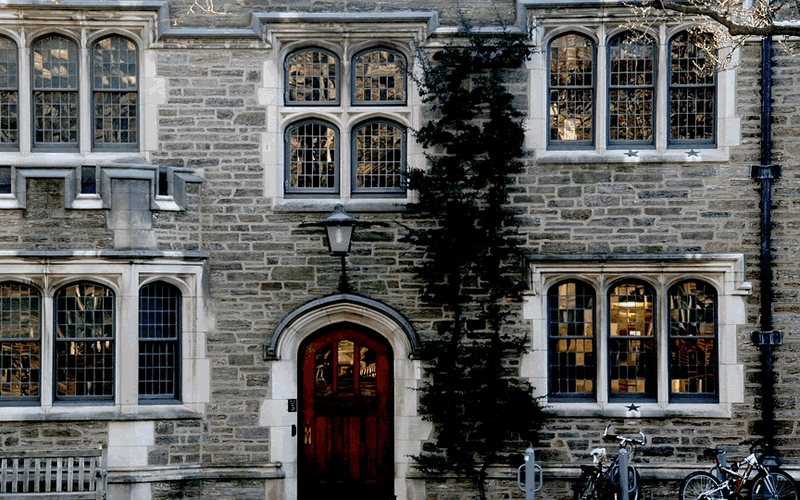
By Andy Brack, editor and publisher | An ultra-conservative culture warrior is not the right person to lead the state Commission on Higher Education (CHE).
 But hey, this is red South Carolina where some folks apparently think that a past editor of a neo-Confederate journal who got a Ph.D. in government and international studies is a good choice to be a finalist to lead the state agency with oversight for new college programs.
But hey, this is red South Carolina where some folks apparently think that a past editor of a neo-Confederate journal who got a Ph.D. in government and international studies is a good choice to be a finalist to lead the state agency with oversight for new college programs.
Hmmm. Wonder if this means someone wants more God in public liberal arts education?
The state Commission on Higher Education, which has oversight of new buildings and programs, got in hot water last year after state lawmakers learned the agency’s president and executive director got a raise of almost $91,500 to $257,767 a year. Lawmakers squawked. The president and the agency’s board chairman eventually stepped down.
That led CHE to post a vacancy on its website. Five dozen people applied and, according to media reports, six semi-finalists were interviewed. Three became finalists, including an assistant commissioner of a similar agency in another state and a higher education lawyer with 20 years of experience in education law and ties to the Palmetto State.
The third finalist is Leesville’s Oran P. Smith, a poster boy for the Christian right who reportedly is the favored choice of GOP Gov. Henry McMaster. Guess who appoints members of the commission, with input from the legislature? The governor.

Smith’s past job of editing Southern Partisan magazine from 1989 to 1999 came to light in recent media reports. But it’s not listed in his 22-page job application that includes a curriculum vitae with four pages of his books, book chapters, publications, presentations, speeches and interviews.
Rather, he says he spent 1988 to 1999 as a vice president of Richard Quinn and Associates, a primarily Republican Columbia political consulting firm with clients that have included McMaster and state Attorney General Alan Wilson. The namesake, Richard Quinn Sr., is a GOP kingmaker who was indicted last month on 11 counts of perjury and one count of obstruction of justice as part of a Statehouse corruption probe.
Smith, who has served on the board of trustees of Coastal Carolina University since 1993, also did not list articles like this in his application package: “Rules are rules: How immorality is expensive” (2018) and “South Carolina schools are not underfunded” (2019). But he did list works on conservative Christians, fundamentalism, higher education reform, the Confederate flag, the Common Core curriculum, the teaching of character and “the sanctity of human life.”
As a president and CEO of the Palmetto Family Council from 2002 to 2018, he worked on “defending and strengthening families in South Carolina” by advocating vigorously against abortion, for marriage, for religious liberty, for vouchers, for charter schools, for evolution and for abstinence education. The organization, now called Palmetto Family, also pushed for graduation credit for off-campus Bible study.
Then in 2013, he and former GOP U.S. Sen. and Heritage Foundation president Jim DeMint co-founded the Palmetto Promise Institute. He currently is serving as its senior fellow ($120,000 a year) in what is a more sophisticated effort of “using high-end graphic design and direct personal interaction with state leaders” to push conservative reform.
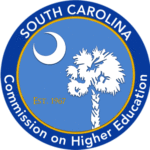 Get the picture? Smith, who by all reports is a nice guy, is a proud conservative zealot who wants to put more of what South Carolina once was back into the public sphere. But that’s not what the Commission on Higher Education needs today.
Get the picture? Smith, who by all reports is a nice guy, is a proud conservative zealot who wants to put more of what South Carolina once was back into the public sphere. But that’s not what the Commission on Higher Education needs today.
Let’s hope Smith continues to inject ideas into the public forum, but as a think tank guy, not head of a state agency. Board members of the Commission on Higher Education should reject his application because there’s one place where narrow ideas aren’t needed – the very place that oversees colleges and universities and the big ideas that emanate from them.
If the board can’t find a good candidate among the other two finalists, it should hire a professional search firm and start over. Our students deserve that.
- Andy Brack’s new book, “We Can Do Better, South Carolina,” is now available for $14.99 in paperback via Amazon.
- Have a comment? Send to: feedback@statehousereport.com.
SPOTLIGHT: Conservation Voters of South Carolina
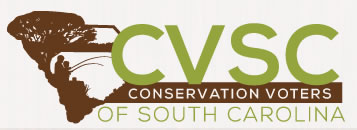 The Conservation Voters of South Carolina is a statewide nonprofit organization that fights for the Palmetto State’s air, water, land and energy through political action. The organization is bipartisan, pragmatic and effective.
The Conservation Voters of South Carolina is a statewide nonprofit organization that fights for the Palmetto State’s air, water, land and energy through political action. The organization is bipartisan, pragmatic and effective.
Through scorecards and advocacy at the Statehouse, CVSC holds South Carolina legislators accountable for their votes and actions. As a small organization that operates as a nonprofit and has a political action committee, we have a big impact. Learn more today by clicking any of the links below:
HILLMAN: It’s time to move beyond white privilege
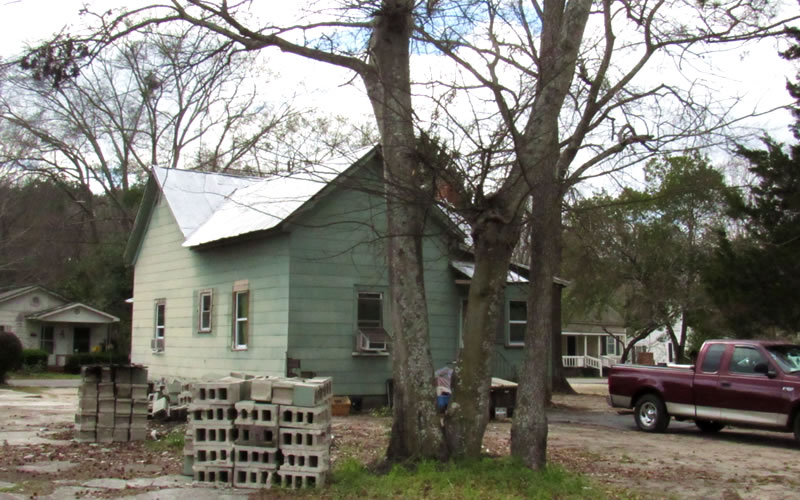
By Carol Hillman, special to Statehouse Report | My husband and I are white. When we moved to South Carolina four years ago, we decided to volunteer as mentors to students in Jasper County, one of the state’s poorest counties.
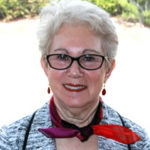
The county is mostly white, but the public school is 86 percent minority. Many white people send their children to mostly white charter or private schools.
We have attended 58 district basketball games and this black and Hispanic community has adopted us, sharing their dreams for their children to escape poverty.
Mothers work two and three jobs. Families live one paycheck away homelessness. I asked one 5th grade girl, “What makes you special?” Pulling up her sleeve, she showed me her psoriasis and said, “Sometimes we have money for medicine cream.”
Students get good grades, are outstanding athletes and hold after-school jobs. They have dreams like all teenagers, but it is so hard for them.
South Carolina is home to the “Corridor of Shame”, which is the name of a 2007 documentary that shows the terrible conditions of public school buildings and their “minimally adequate” education along Interstate 95. Students in these areas often have trouble doing well on ACTs, SATs, ASVAB and statewide tests.
But our grandchildren, who live in metropolitan areas, attended outstanding public schools and can afford to attend any college that accepts them.
Unfortunately, many colleges don’t recruit from rural schools. It’s easier to go to a metro area and see dozens of good students from competitive schools.
Meanwhile, teachers certified in America often avoid poor districts because of low pay and inadequate housing. Districts are forced to hire teachers from other countries. And this leads to even more problems, such as a student who complained she couldn’t understand her math teacher. When I talked to the teacher, I could not understand him. It wasn’t the math that the student couldn’t understand. It was the teacher’s English.
Many who graduate in Jasper County try to attend a technical college. Too often though, they drop out because their car breaks down or grandma needs someone to care for her or they run out of money. They struggle academically because they aren’t as well prepared as they should be.
Sometimes I ask myself how well I would do if I were a person of color stuck in a poor, rural country. I don’t think I’d do too well.
Most of my neighbors are white and interested in the students we mentor. Some donate money so we can give students new experiences. But most white people have a skewed view of minorities. “Isn’t it dangerous in that school?” or “it’s too bad the kids have to quit school to work in the fields.”
Some of my neighbors want to visit the school. They are surprised that “the kids are so clean.” “Look, they’re holding doors for us.” “They seem really smart. They must live in nice houses.”
The truth is that despite their poverty, they are raised well. They are polite and caring. They know life is hard and just keep moving forward no matter what.
What have these young people done to deserve the treatment they get? They deserve better. Some people say parents are at fault for not valuing education, but what good is education if you can’t get a good job in rural South Carolina?
So why do legislators look for statewide solutions to local problems? Why don’t they ask the people living in those communities what needs to be done?
Why do legislators recommend simple solutions to complex problems? What does a score on a test tell you about how to educate people?
Some white people think minorities would be better off if they would learn to be more like us. But that’s nonsense.
Human beings are pack animals. We hang around with and elect people like ourselves. South Carolina is 66 percent white. Yet most of our elected officials are white; most of our wealthiest citizens are white; most of our state’s CEOs are white; most of our doctors and lawyers are white; most of our teachers are white; most of our justice system is white. Even elected officials who are minorities must attract white voters to keep their seats.
Every wave of immigrants to our country experienced prejudice. Through hard work, education and often “passing” for white, they were able to realize the American Dream, sometimes in one generation.
South Carolina is wasting the contributions that could be made by 30 percent of our people. Those of us lucky enough to be able to “pass” must be willing to share our good fortune. It’s the smart thing to do and it’s the right thing to do. And more than anything, it’s time to move beyond the past.
Carol Hillman of Bluffton is a founder of the S.C. Organization of Rural Schools. Have a comment? Send to: feedback@statehousereport.com.
FEEDBACK
Send us your thoughts … or rants
We love hearing from our readers and encourage you to share your opinions. But you’ve got to provide us with contact information so we can verify your letters. Letters to the editor are published weekly. We reserve the right to edit for length and clarity. Comments are limited to 250 words or less. Please include your name and contact information.
- Send your letters or comments to: feedback@statehousereport.com
MYSTERY PHOTO: Stately old building
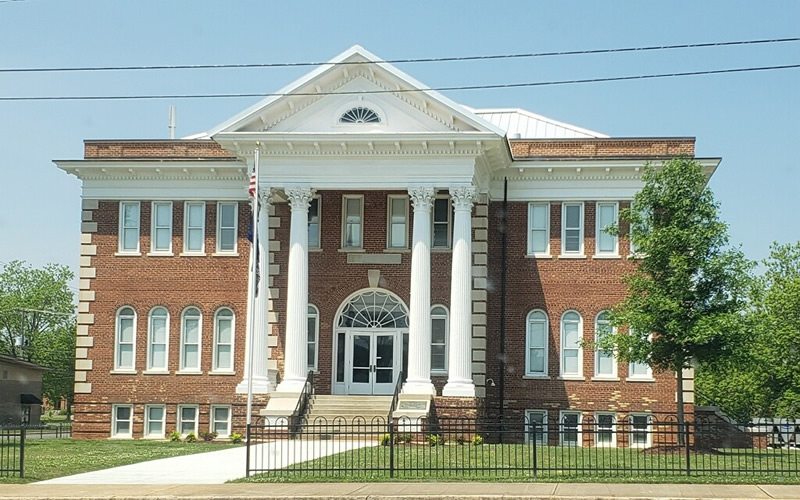
At one point in the life of this stately old building, it was a high school, according to a reader who sent in the photo. But where is it? Send your guess about the location of this photo to feedback@statehousereport.com. And don’t forget to include your name and the town in which you live.
Our previous Mystery Photo
 The subject of our May 3 mystery, “Now, this is some kind of shrubbery,” elicited lots of guesses that it was in Pearl Fryar’s topiary garden in Bishopville. Except that it isn’t. Longtime photographer Chuck Boyd of Hanahan spied the shrub-car in Walterboro outside of a body shop on U.S. Highway 17 and sent us the picture to be a mystery.
The subject of our May 3 mystery, “Now, this is some kind of shrubbery,” elicited lots of guesses that it was in Pearl Fryar’s topiary garden in Bishopville. Except that it isn’t. Longtime photographer Chuck Boyd of Hanahan spied the shrub-car in Walterboro outside of a body shop on U.S. Highway 17 and sent us the picture to be a mystery.
Congratulations to those who correctly identified the photo: Alta Mae Marvin of Walterboro; Tray Hunter of Bluffton; Dale Rhodes of Richmond, Va.; George Graf of Palmyra, Va.; James Gainey of Conway; and Jay Altman of Columbia.
Graf tells us he went to some lengths to locate the photo, first looking up “unusual South Carolina topiary sculptures,” which came back with several results, including the shrubs at Bishop’s Body Shop in Walterboro.
And then he got curious: “ O called Bishop’s today to get the lowdown on the car hedges. Lindsay, who works there, told me that there are three of these “hedge cars” on the property — one on each side of the driveway and one near the building. She said they were made on purpose for the business.”
Thanks for the hard work, George, and for the great photo Chuck!
- Send us a mystery: If you have a photo that you believe will stump readers, send it along (but make sure to tell us what it is because it may stump us too!) Send to: feedback@statehousereport.com and mark it as a photo submission. Thanks.
S.C. ENCYCLOPEDIA
HISTORY: Education in South Carolina
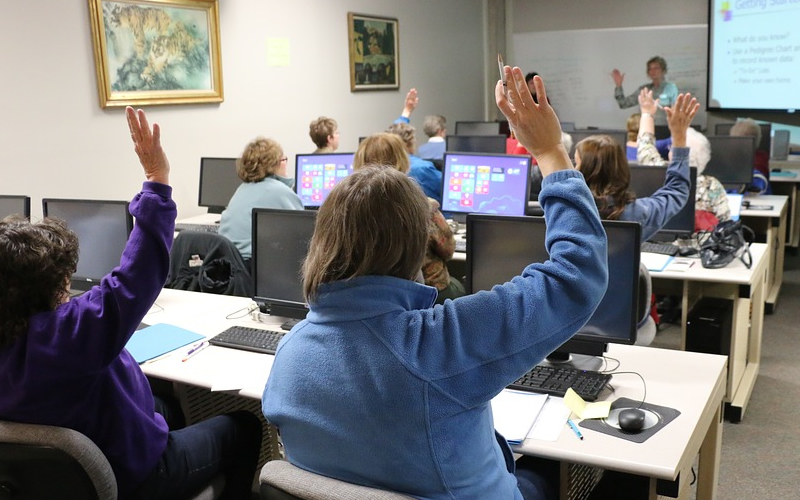
S.C. Encyclopedia, part 2 of 4 | The central change to South Carolina society resulting from the Civil War was the abolition of slavery. As federal troops occupied the Sea Islands, and later the entire state, teachers sponsored by northern philanthropic and missionary societies followed, establishing schools for former slaves. Notable among these were the Penn School on St. Helena Island and the Avery Institute in Charleston. Enthusiasm among freedmen for education was high.
The constitution of 1868, shaped by Republicans during Radical Reconstruction, made the legislature responsible for “a uniform system of public schools.” Reflective of the concerns of the newly enfranchised freedmen, these schools were to be “open to all the children and the youths of the State, without regard to race and color.” Most whites interpreted the attempt to offer free, public education to all as the imposition of a plan for social and racial equality. Schools were quickly segregated, the legislature was slow to provide funds, and mismanagement and fraud undermined the system. By 1877 there were 2,552 schoolhouses in the state, but more than half were made of logs and only twenty-nine of brick. The vast majority were one-room, nongraded schools providing only elementary education and with an average school term of just four months. The limited impact of this system is suggested by high illiteracy rates. In 1880 twenty-two percent of whites and more than seventy-eight percent of blacks in South Carolina were completely illiterate.
The school system remained in poor shape as Reconstruction ended in South Carolina and the political system was reclaimed by conservative Democrats. The dominant philosophy was characterized by extreme fiscal conservatism along with the belief that education remained primarily a private matter and that laboring whites and, especially blacks, needed little schooling. The constitution of 1895, designed to disfranchise blacks, prescribed a dual school system. Nonetheless, there were positive developments. Attention was paid to teacher training, and the Winthrop Training School for Teachers was opened in Columbia in 1887 and then relocated to Rock Hill. In 1901 a systematic course of study was developed by the State Department of Education. In 1907 the General Assembly allowed larger districts to establish high schools. By the early twentieth century, state efforts were supplemented by those of philanthropic organizations, with some efforts being directed specifically at education for blacks, including the Rosenwald Fund (for school buildings), the Slater Fund (for industrial education), and the provision of Jeanes Teachers for rural, black schools.
Despite some progress, underfunding and inequity continued to characterize the state system as a whole. In urban areas reformers focused on improving schools as a basis for economic growth. Columbia built several new schools, and Spartanburg County had perhaps the best-funded system in the state. A compulsory attendance law was passed in 1919, and the State Department of Education began teacher certification in 1920. As mill villages grew, schools were provided with a mix of public and private funds. But in 1920 South Carolina had the lowest expenditure per pupil in the nation. The school year ranged from 180 days in some localities to only 90 in others. White schools received funding at much higher rates than black schools. When Dillon County raised its taxes to provide better schools, the distribution per pupil for whites was twelve times greater than for blacks. By 1927 there were 279 high schools for whites but only 10 for blacks. In an attempt to address some of these inequities, at least for white students, the General Assembly passed the “6–0–1” law in 1924, providing teacher salaries for six months if the local district would pick up the seventh and abide by certain state regulations and minimum standards.
— Excerpted from an entry Deborah M. Switzer and Robert P. Green Jr. This entry may not have been updated since 2006. To read more about this or 2,000 other entries about South Carolina, check out The South Carolina Encyclopedia, published in 2006 by USC Press. (Information used by permission.)
New book now available in paperback
 Now you can get a copy of editor and publisher Andy Brack’s We Can Do Better, South Carolina! ($14.99) as a paperback.
Now you can get a copy of editor and publisher Andy Brack’s We Can Do Better, South Carolina! ($14.99) as a paperback.
The book of essays offers incisive commentaries by editor and publisher Andy Brack on the American South, the common good and interesting South Carolina leaders, such as former U.S. Sen. Fritz Hollings, civil rights advocate Septima Clark, former S.C. Gov. David Beasley and more. There also are discussions on civil rights struggles with which the Palmetto State continues to grapple. as well as commentaries on politics, governments, the hangovers of South Carolina’s past and her future opportunities.
We Can Do Better, South Carolina! is also available exclusively as a Kindle book for $7.99. Click here to purchase a Kindle copy.
- If you have a comment or questions about the book, please let us know at: feedback@statehousereport.com.
ABOUT STATEHOUSE REPORT
Statehouse Report, founded in 2001 as a weekly legislative forecast that informs readers about what is going to happen in South Carolina politics and policy, is provided to you at no charge every Friday.
- Editor and publisher: Andy Brack, 843.670.3996
- Statehouse correspondent: Lindsay Street
More
- Mailing address: Send inquiries by mail to: P.O. Box 22261, Charleston, SC 29407
- Subscriptions are free: Click to subscribe.
- We hope you’ll keep receiving the great news and information from Statehouse Report, but if you need to unsubscribe, go to the bottom of the weekly email issue and follow the instructions.
- © 2019, Statehouse Report. All rights reserved.

















Pingback: 5/10, full issue: Surprising year of environment; No on CHE finalist; White privilege – Statehouse Report – Student News